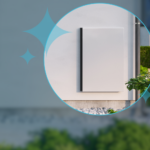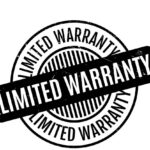
In the rapidly evolving world of renewable energy, small businesses and commercial entities increasingly turn to solar power as a sustainable and cost-effective solution.
With the solar industry’s growth, choosing the right commercial solar panels for commercial installations has become crucial for businesses committed to energy efficiency and environmental sustainability.
The market is flooded with options, but certain manufacturers stand out for their reliability, advanced technology, and efficiency, making them the preferred choice for large-scale solar projects.
In this article, we will explore some of the leading solar panel manufacturers – Jinko, Trina, First Solar, LONGi, and Q CELLS – shaping the landscape of commercial solar energy.
These companies bring unique strengths, from exceptional durability and high-efficiency rates to innovative technologies tailored to commercial demands. Whether enduring the rigors of a commercial setup or maximizing energy yield, these manufacturers have proven their mettle in the solar industry. They are an approved manufacturer for the Solar Insure AVL.
The Solar Insure AVL ensures they meet stringent criteria in terms of financial health, manufacturing practices, product quality, and warranties to be deployed on our commercial projects
Table of Contents
Jinko Solar Commercial Solar Panels:
Jinko’s durability and long lifespan are crucial for commercial installations. Their Eagle & Tiger standard and Bifacial panels’ high resistance to PID (Potential Induced Degradation) and LID (Light Induced Degradation) also warrant mention, as these are critical factors in maintaining efficiency over time.
JinkoSolar’s Tiger Bifacial DG solar panel line offers high-efficiency monocrystalline PERC options from 440-460 watts.
Key details:
- Bifacial factor of up to 25% extra rear side gain
- High cell efficiency up to 20.28% conversion rate
- Improved temperature coefficient of -0.35%
- Durable 30-year linear power output warranty
- Tiling ribbon cell interconnect technology to minimize faults
- Compatible with 1500-volt systems for large arrays
- Temperature range of -40°C to +85°C
- Dimensions of 2194 x 1034 x 30mm
- Certified for quality, product safety, and sustainability
Jinko highlights this line’s reliability, performance consistency, and cost competitiveness. The tiling ribbon cell connections, nine-bus bar architecture, and bifacial gain have helped maximize commercial energy output over decades.
Jinko’s scale, experience, and comprehensive warranty coverage make these excellent choices for commercial solar projects seeking efficient, high-quality PV modules from a bankable manufacturer.
Trina Solar Commercial Solar Panels:
The Trina Solar Vertex Series is an optimal 600W high-efficiency bifacial commercial solar panel designed for maximum energy yield in large-scale commercial installations.
Key features include durable dual glass framing, temperature-resilient N-type mono cells with 22.2% efficiency, and 80% rated bifacial for substantial backside gain. Compatible with 1500V systems while minimizing strings, this panel leverages smart construction innovations like multi-busbar connectivity and non-destructive cell cutting to minimize faults.
Backed by Trina Solar and rated for over 30 years of optimized power production with industry-leading warranties, the TSM-NEG19RC.20 delivers reliable, high-density performance ideal for solar farms and rooftops.
Canadian Solar CS7N
Canadian Solar’s new CS7N monoracial and bifacial solar panel series is considered a top-rated and highly reliable solar panel for the commercial solar industry.
Key points Include:
- Power output ranges from 640W to 670W with up to 21.6% module efficiency
- Compatible with 1500V systems, making them well-suited for large-scale installations
- N-type mono PERC cells for better high-temperature yield and lower degradation
- Bifaciality rated at 70%, meaning substantial extra gain from panel backside reflection
- Durable dual glass construction to handle heavy snow, wind, and weather stresses
- Integrated circuitry for minimizing hot spots and other field faults/failures
- 30-year materials/workmanship warranty and 87.4% 30-year power output warranty
With power ratings up to 670W, these Canadian Solar panels maximize energy density. N-type cell technology and robust bifacial dual-glass encapsulation ensure reliable high performance and yields for decades in rugged commercial environments. Low degradation rates, PID resistance, and mitigated LID simplify maintenance too. Overall, as far as commercial solar panels are concerned, they are a top-notch option.
LONGi Solar:
Longi Solar’s Hi-MO 5 solar panel series provides some of the best-in-class solar panels for the commercial industry.
Key highlights include:
- Monofacial PERC modules available in power ratings from 370W to 540W
- Options for half-cut cells and multi-busbar interconnects to reduce internal resistance
- Higher efficiency modules rated up to 21.5% conversion efficiency
- Compatibility with 1500V systems allows high string lengths
- Temperature coeff. of -0.35% per degree Celsius
- 35mm frame height, compatibility with trackers
- Snow loads up to 5400Pa, and wind loads up to 2400Pa
- 210 mm large-format monocrystalline PERC cells
- 30 year power output warranty based on linear decay to 86.3% in year 30
- 12 year materials/workmanship warranty
Some benefits of these Longi panels highlighted are higher yields in high temperatures/diffuse light conditions, reduced cell microcracks/hot spots due to multi-busbar interconnects, robust wind/snow load durability, and optimized shading performance. These features, plus Longi’s manufacturing scale and experience, make their 5-series suitable for commercial projects seeking cost-effective, reliable modules.
Q CELLS Q.Peak Duo:
Q.PEAK DUO XL-G10 solar panel series from Hanwha Q CELLS, a major manufacturer. Some key details:
- Bifacial monocrystalline panels available from 475W to 490W
- High 21.2% efficiency and power class up to 156 half-cut cells
- Compatible with 1500V systems for arrays and trackers
- 30-year warranty promising max 0.45% yearly degradation
- Temperature coefficient of -0.34%
- Class II fire rating, wind/snow ratings up to 2400/5400 Pa
- IP68-rated junction box with integrated bypass diodes
- Compatible with multiple mounting systems with 35mm frame
Q CELLS highlights the advantages of bifacial gain, lower system costs per watt, and temperature-resilient performance.
The half-cut cells and multi-busbar connections also minimize internal resistance for better real-world production. These factors, plus a strong 30-year warranty with a high 95.4% output retention, make the Q.PEAK DUO XL-G10 suitable for commercial and utility deployments needing reliable high performance over decades.
Additional Points to Consider
- Warranty and Service: Emphasize the importance of comprehensive warranties and reliable customer service, which are crucial for commercial projects.
- Insurance: Getting proper insurance coverage is an important consideration for commercial solar installations, protecting against weather events, damage, and liability risks.
- Financial Stability of Manufacturers: The long-term viability of the solar panel manufacturer is key, as it affects warranty servicing and panel availability for future expansions or replacements.
- Panel Size and Installation Flexibility: For commercial installations, the physical size of the panels and the flexibility in installation options can impact project logistics and costs.
- Bifacial Panels: Consider mentioning bifacial panels, which are gaining popularity in commercial installations due to their ability to capture sunlight from both sides, increasing overall efficiency.
Conclusion:
Your list is comprehensive and well-researched, showcasing a good understanding of what commercial solar installations require. These companies are indeed at the forefront of the solar industry, offering products that meet the diverse needs of commercial clients.
By considering additional factors like sustainability practices, financial stability, and technological advancements like bifacial technology, you can provide an even more robust guide for commercial solar panel selection.


